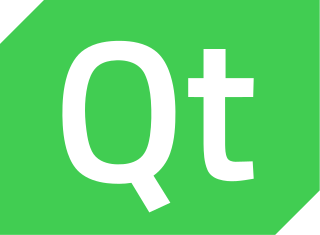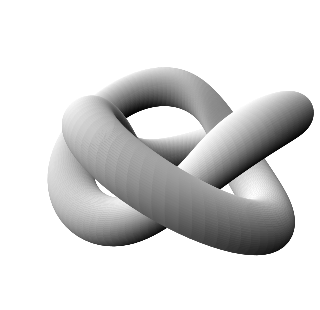
MATLAB is a proprietary multi-paradigm programming language and numeric computing environment developed by MathWorks. MATLAB allows matrix manipulations, plotting of functions and data, implementation of algorithms, creation of user interfaces, and interfacing with programs written in other languages.

Qt is a widget toolkit for creating graphical user interfaces as well as cross-platform applications that run on various software and hardware platforms such as Linux, Windows, macOS, Android or embedded systems with little or no change in the underlying codebase while still being a native application with native capabilities and speed.

GNU Octave is software featuring a high-level programming language, primarily intended for numerical computations. Octave helps in solving linear and nonlinear problems numerically, and for performing other numerical experiments using a language that is mostly compatible with MATLAB. It may also be used as a batch-oriented language. Since it is part of the GNU Project, it is free software under the terms of the GNU General Public License.

Scilab is a free and open-source, cross-platform numerical computational package and a high-level, numerically oriented programming language. It can be used for signal processing, statistical analysis, image enhancement, fluid dynamics simulations, numerical optimization, and modeling, simulation of explicit and implicit dynamical systems and symbolic manipulations.
Invision Community is primarily an Internet community software produced by Invision Power Services, Inc. It is written in PHP and uses MySQL as a database management system. Invision Power Services sell applications that each can be bought and installed separately in addition to the Suite, the most widely known being the Internet forum software Invision Power Board. Invision Community refers to the combined collection of applications provided by Invision Power Services and is the core of the framework.

SageMath is a computer algebra system (CAS) with features covering many aspects of mathematics, including algebra, combinatorics, graph theory, numerical analysis, number theory, calculus and statistics.

Euler is a free and open-source numerical software package. It contains a matrix language, a graphical notebook style interface, and a plot window. Euler is designed for higher level math such as calculus, optimization, and statistics.
The following tables provide a comparison of numerical-analysis software.

Oracle VM VirtualBox is a free and open-source hosted hypervisor for x86 virtualization, developed by Oracle Corporation. Created by Innotek, it was acquired by Sun Microsystems in 2008, which was in turn acquired by Oracle in 2010.
EEGLAB is a MATLAB toolbox distributed under the free BSD license for processing data from electroencephalography (EEG), magnetoencephalography (MEG), and other electrophysiological signals. Along with all the basic processing tools, EEGLAB implements independent component analysis (ICA), time/frequency analysis, artifact rejection, and several modes of data visualization. EEGLAB allows users to import their electrophysiological data in about 20 binary file formats, preprocess the data, visualize activity in single trials, and perform ICA. Artifactual ICA components may be subtracted from the data. Alternatively, ICA components representing brain activity may be further processed and analyzed. EEGLAB also allows users to group data from several subjects, and to cluster their independent components.

A free-software license is a notice that grants the recipient of a piece of software extensive rights to modify and redistribute that software. These actions are usually prohibited by copyright law, but the rights-holder of a piece of software can remove these restrictions by accompanying the software with a software license which grants the recipient these rights. Software using such a license is free software as conferred by the copyright holder. Free-software licenses are applied to software in source code and also binary object-code form, as the copyright law recognizes both forms.
Proprietary software, also known as non-free software or closed-source software, is computer software for which the software's publisher or another person reserves some rights from licenses to use, modify, share modifications, or share the software. It is the opposite of open-source or free software. Non-free software sometimes includes patent rights.

The GNU General Public License is a series of widely used free software licenses that guarantee end users the freedom to run, study, share, and modify the software. The licenses were originally written by Richard Stallman, founder of the Free Software Foundation (FSF), for the GNU Project, and grant the recipients of a computer program the rights of the Free Software Definition. The GPL series are all copyleft licenses, which means that any derivative work must be distributed under the same or equivalent license terms. This is in distinction to permissive software licenses, of which the BSD licenses and the MIT License are widely used, less restrictive examples. GPL was the first copyleft license for general use.

In computer science, Orfeo Toolbox (OTB) is a software library for processing images from Earth observation satellites.
This is a list of free and open-source software for geophysical data processing and interpretation. The list is split into broad categories, depending on the intended use of the software and its scope of functions.

MuPAD is a computer algebra system (CAS). Originally developed by the MuPAD research group at the University of Paderborn, Germany, development was taken over by the company SciFace Software GmbH & Co. KG in cooperation with the MuPAD research group and partners from some other universities starting in 1997. MuPAD's graphics package was particularly successful, especially considering the era when it was developed.
The following table compares notable software frameworks, libraries and computer programs for deep learning.










